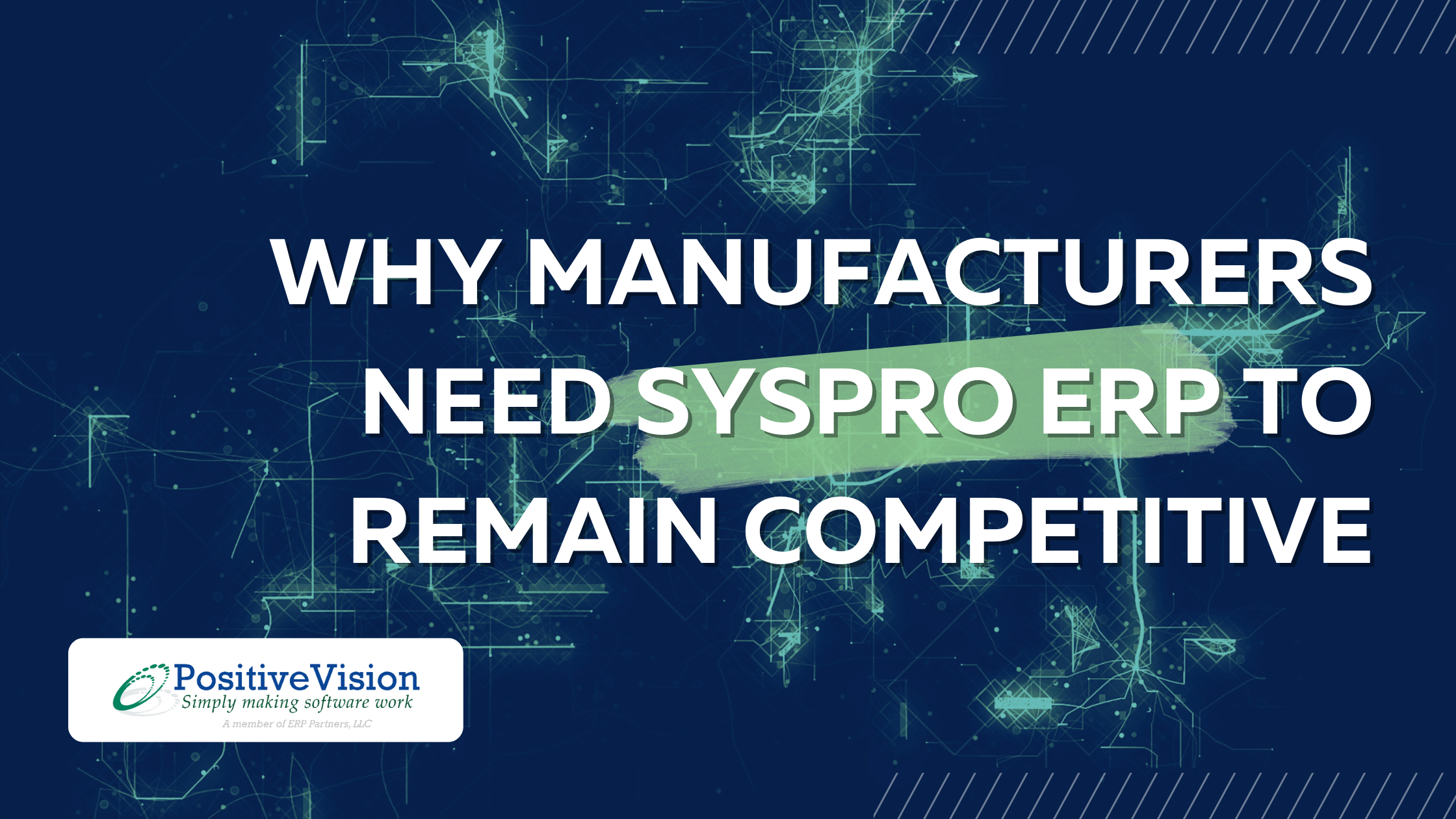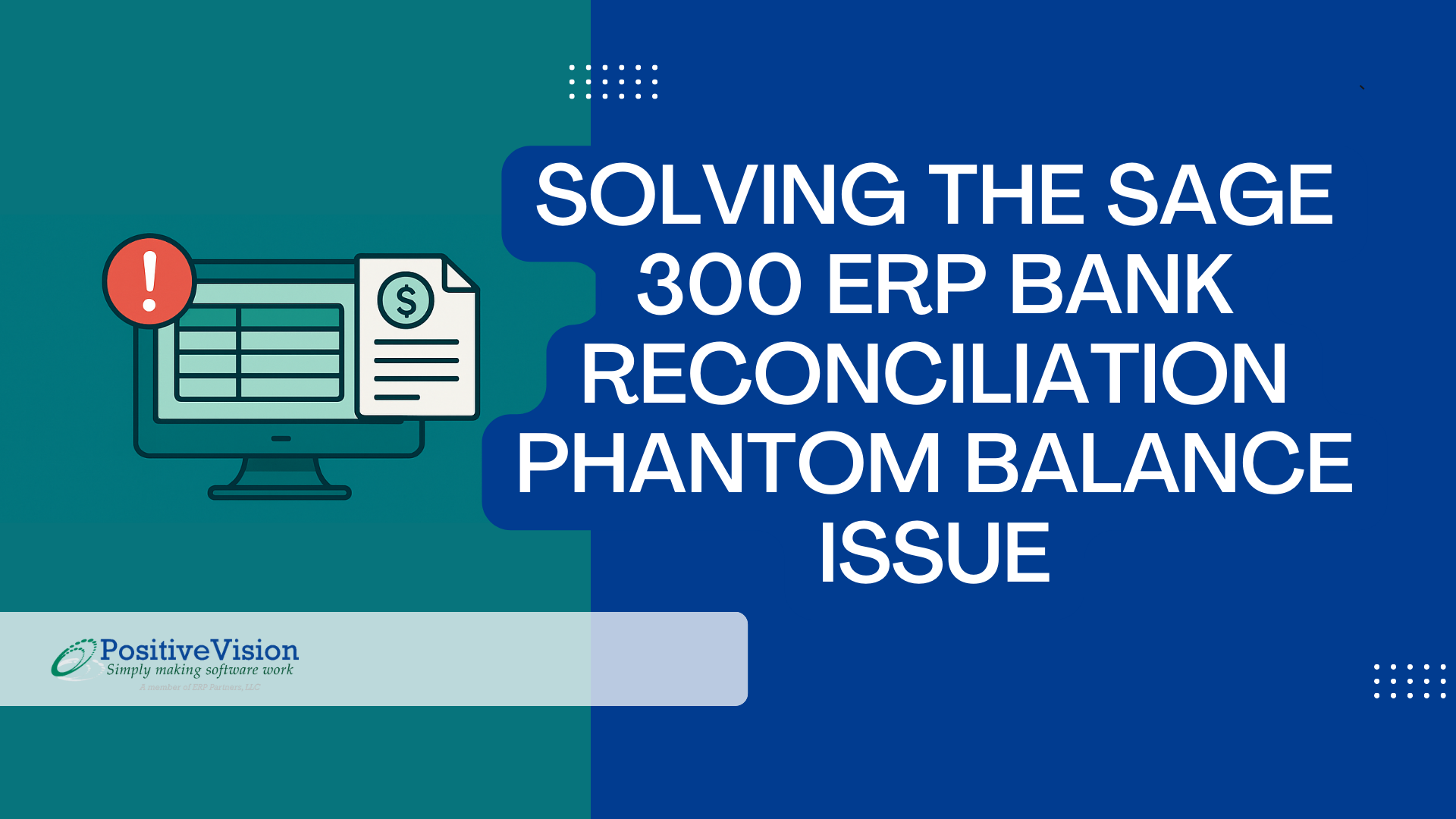Manufacturers today are navigating an incredibly challenging landscape. Supply chain disruptions, labor shortages, rising regulatory demands, and customer expectations for faster, more customized products have converged into a complex business environment. Systems that once kept operations running smoothly are starting to show cracks, and problems are popping up where they’re least expected. Generic ERP platforms, built to serve every industry, are increasingly becoming obstacles rather than enablers of growth.
Business Automation and Software Blog
Linda Baran
Recent Posts
Why Manufacturers Need SYSPRO ERP to Remain Competitive
Topics: SYSPRO ERP, Syspro consultants
AI in ERP Software: Chicago Consultants Share Their Insights
As Chicago-area enterprise resource planning (ERP) consultants, we’re always on the lookout for innovations that can help our clients. Whether it’s the latest shortcuts, tips, or hacks, or updates to SYSPRO and Sage 300 ERP that help our clients do more faster, and better, we’re on it.
Topics: Software Chicago
Solving the Sage 300 ERP Bank Reconciliation Phantom Balance Issue
After spending a lot of time troubleshooting, I finally cracked the code on a particularly stubborn Sage 300 ERP bank reconciliation problem. This issue goes beyond a simple bug and can completely block your month-end closing process. Here's what happened and how to fix it.
Topics: Sage 300 ERP
Can ERP Software Help With Tariff Uncertainties?
As ERP software (Chicago) consultants, we understand how uncertainties can rock manufacturers’ plans. Manufacturers like certainty. I think we all do. We like to know that our lives are predictable, and that goes for businesses, too. Manufacturers thrive when they can predict supply chain availability, pricing, shipping times, and more.
Topics: ERP software Chicago
Driving Success: How SYSPRO ERP Helps Auto Manufacturers Tackle Tariff Challenges
Bet you didn’t have “tariffs” on your 2025 bingo card. We didn’t, either. But tariffs are now a fact of life. Auto manufacturers in particular are grappling with the challenges of tariffs. The 25% tariff on imported automobiles and a similar one on parts has really been a bump in the road.
Fortunately, SYSPRO ERP can help. It’s designed for automakers in a way that other ERPs aren’t. SYPRO ERP can help make your company more efficient, so you can avoid raising prices. If you can cut costs, you can maintain margins. SYSPRO ERP gives you a powerful tool to navigate the new world of tariffs.
Topics: SYSPRO ERP
ERP Trends: Specialized Systems for Discrete Manufacturing
Among ERP trends, one stands out that we believe is here to stay: tailored ERP systems built specifically for different types of manufacturers.
Let’s be real—an ERP won’t solve all your problems overnight. The needs of a process manufacturer look different from those of a discrete manufacturer. Process manufacturers deal with formulas and recipes. Discrete manufacturers wrestle with BOMs, production schedules, assembly, and more.
Topics: ERP trends
Can an ERP (SYSPRO) Remove Barriers to Adopting Smart Manufacturing Practices?
An ERP (SYSPRO) can help remove potential barriers preventing companies from adopting smart manufacturing practices. Smart manufacturing practices are part of manufacturers’ overall digital transformation journey and encompass technologies such as artificial intelligence (AI), machine learning (ML), IIoT, cloud and mobile applications.
Topics: ERP SYSPRO
Integrating Manufacturing with Business Through an ERP Manufacturing System
An ERP manufacturing system helps connect all aspects of a company for optimal visibility. Manufacturing is separate from operations, sales, and accounting in many companies. With an ERP manufacturing system, companies can integrate the entire manufacturing value chain, including material requirements planning (MRP), master production schedule, manufacturing operations management, engineering change control, and traceability.
Topics: ERP manufacturing system
Addressing Productivity Challenges with an ERP Manufacturing System
Manufacturers seeking productivity gains should invest in an ERP manufacturing system as the cornerstone of their digital transformation initiatives. A recent survey commissioned by SYSPRO and conducted by Frost & Sullivan highlights the need for technology enhancements throughout complex manufacturing processes. However, several challenges stand in the way of adopting all possible digital transformation initiatives. Let’s explore these challenges, examine the state of complex manufacturing today, and discuss why an ERP manufacturing system can solve many of these challenges.
Topics: ERP manufacturing system
When Evaluating SYSPRO, Resellers Are Part of the Total Package
SYSPRO resellers are business partners who provide end customers with valuable software and services. They become your main point of contact during the evaluation and purchasing process. If you’re looking for an enterprise resource planning (ERP) system and are considering SYSPRO, resellers should play an important role in your decision-making process. Here’s why.
Topics: SYSPRO Resellers












 © 2019 PositiveVision • 219 E. Thorndale Ave. Roselle, IL 60172
© 2019 PositiveVision • 219 E. Thorndale Ave. Roselle, IL 60172